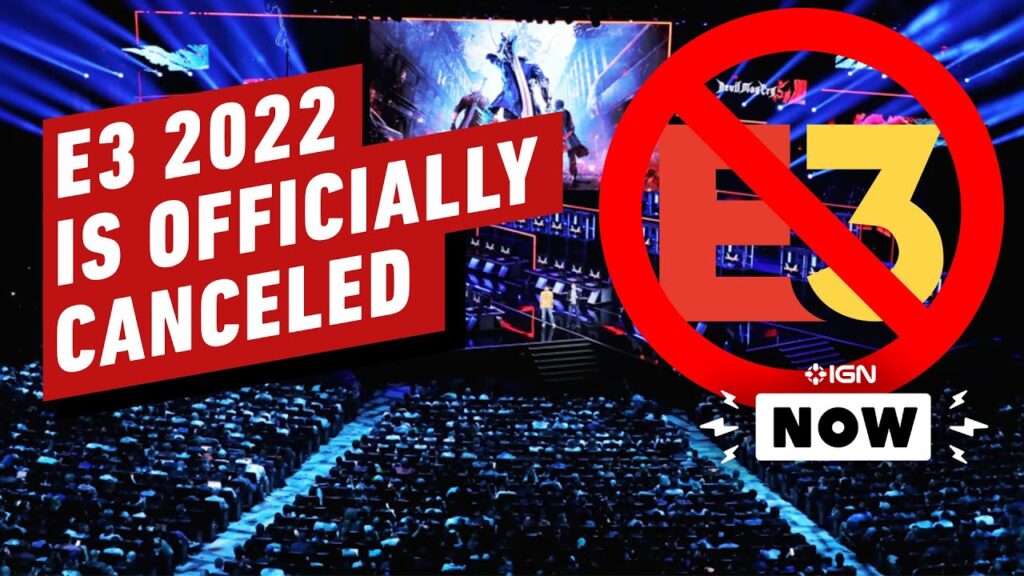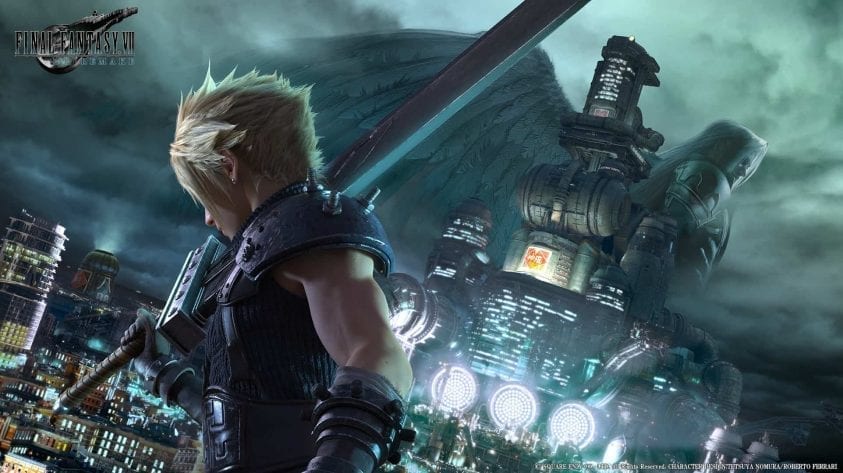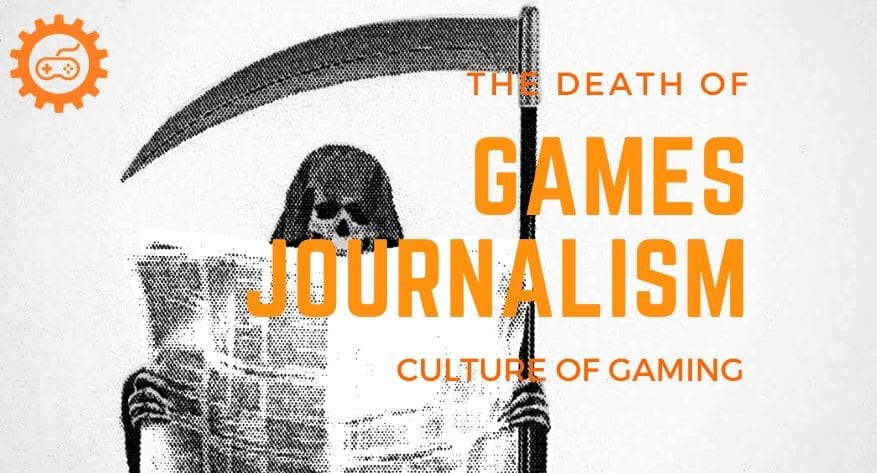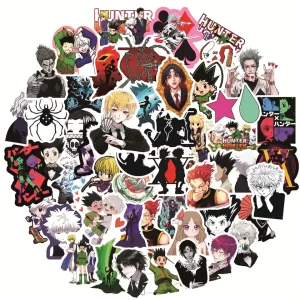Gaming media is going through a transitional stage at the moment. Gaming stores are on their last legs, with many touting that recent events may spell the end for their respective companies. The likes of Gamestop in America and Game in the UK all but confirming their exit from the gaming retail world.
So with all this, you would expect gaming news outlets to potentially benefit from a captive audience. With many countries in lockdown, most people find themselves with more free time than ever before. So why is it that gaming journalism is suffering through this time? Plus, arguably from before this even began.
Myself and my very talented colleague Will Nelson have sat down to have a conversation about a few of the big topics surrounding the games journalism world. We play some question tennis with the aim of getting to the bottom of why the news medium may be on the decline.
Just as a disclaimer, we aren’t trying to ‘out’ anyone or any outlet, we’ll mention mistakes and bad decisions, but we place them in the context of wider problems. All to show you where our points come from. We have also tried to provide links to these issues where appropriate. Also, these are opinions, if you feel differently, feel free to have a discussion with us in the comments.
Callum – Many gaming outlets are so large their views and methods of reviewing have become both decentralized and ineffective. What does this mean for the way reviews are written, and how can we combat this?
Will – To be clear, we aren’t saying reviewing games is easy. My reviews aren’t even close to perfect, but it’s a skill all journalists need to refine and understand over time. Of course the consumer should go into a review with the understanding that whilst they might think all journalists are completely objective, they aren’t. Having to compile your thoughts on something and put in the framework of complete objective criticism is impossible.
With that said many critics, and major journalist outlets, really seem to struggle with their reviews, which in turn makes the consumer lose interest.
Arbitrary Numbers Don’t Do Games Justice
First of all I’d like to say that review scoring itself is a backwards idea. Giving something a score out of 100 (most sites use the decimal method) attributes exact wealth to a game when subjectivity counteracts it as a piece of art. We here at Culture of Gaming can give a game one out of twenty scores, going from zero to ten in 0.5 increments. Even then, a review should be seen as a piece of critique and praise in-and-of itself, not just a number. But the number is what the consumer focuses on. Is it less than a 7? Then it’s bad! Apparently.
I’m going to use Gamespot’s reviews of Donkey Kong Country Tropical Freeze as my examples. One for the Wii U, and one for the Switch. In comparing these reviews of the same game I hope I can show you how and why game journalists’ reviews can be so out of touch.

But why are both these versions of what is ostensibly the same game (minus minor graphical touch ups and a few extra features), reviewed by different people? Where is the consistency in voice? The Wii U version was given a score of 6, and the Switch version a 9. The Switch review even says “It doesn’t have as much added content as other Wii U-to-Switch ports, but even so, Tropical Freeze is an easy game to recommend.”
A Lack Of Consistency
So why is there a difference of almost a third? Well the Wii U review constantly mentions the lackluster level design – “the mostly unimaginative level design doesn’t mix those ideas [vines, bounce pads, zip-lines] up in new or interesting ways”. Yet the Switch port of the game, where the level design hasn’t changed, says this – “Tropical Freeze thrives on keeping you at the edge, where death-defying performances feel like the norm. There’s practically always a twist or gimmick waiting to upend your expectations and test your reflexes.”
Herein lies the problem, the views on this game are now decentralized, who do you believe? In this case, I think it’s fairly obvious, but take this practice and place it over game reviews as a whole. What are you left with? Confusion, reviewers who don’t understand the game they are playing, and no consistency coming from the same outlet. We’d all agree that the Wii U review seems off, it’s like the critic doesn’t even play video games. You aren’t pandering by saying the same as everybody else if the product discussed is actually of high quality.
Publishers Buying Popularity?
This example helps show you that most consumers don’t trust critics anymore, they rightfully want to make the decisions themselves. If critical voices coming from the same place can’t even be arranged to be consistent, then why on earth do they exist? How are we supposed to trust an outlet’s reviews if they can be so wildly different, on the same product? I used an extreme example, but the point is the same across the board.
This video from Videogamedunkey – I know what you want to say, but trust me – shows that when the viewer understands the critic, they at least feel like they can listen. If a site needs 30 plus reviewers to push out content for revenue, then actual quality has been overtaken by quantity.

image source – Jason, better known as Videogamedunkey pictured (right)
Reviewing games is hard, but having consistency and being knowledgeable about what you’re scoring isn’t. Journalists should know about the landscape of what it is they are reporting, instead of thinking they are so right in their ignorance when giving a game a counterproductive number out of 10.
Will – The bigger gaming journalism has become, the more voices have emerged, what does this mean for their legitimacy and trust worthy nature? What can be done to change this?
Callum – On paper, the constant access to varied and plentiful gaming sources seems ideal. The concept of differing opinions clashing, collaborating and reporting on the biggest issues in gaming. Well that’s exactly what we need. That’s what will keep the medium alive. However, with the emergence of more gaming news outlets, primarily down to the rise of podcasting, the viability of revenue through YouTube and the growth of gaming popularity in general, the medium has become congested.
Those that have expert opinions, have worked in the industry for years and get paid a professional wage to write on their respective websites, are being forced to share their platform with part timers, writers and content creators that have expertise elsewhere. Plus those that have simply jumped on the bandwagon in the search of clicks.

In a day and age where print journalism is as good as gone. Take the closure of the flagship Xbox magazine as proof. The Internet is the only viable money making platform. Therefore, if you’ve got a device and a connection to the web. You have the same audience to work with as the big name writers. Sure they have an established fan base, but going viral with a catchy or controversial title is far from out of the ordinary.
Scratching Itches That Aren’t There
Take this article from Vice titled ‘I wish Resident Evil 2 let me be a more compassionate hero.’ I won’t go into mass detail as Weaponized Nerd Rage does this excellently already. Though what this article epitomizes, is that individuals in places of power within gaming journalism are actively scratching itches that aren’t there. Massaging their own egos and bringing real-life politics into reviews of zombie apocalypse games. Plus actively admitting that they didn’t even play the game. This is the kind of hap-hazard effort of some journalists in high places, which takes the credibility of the field and makes it a joke.

Dean Takahashi’s coverage of Cup head is the most prominent example of a lack of expertise in the field. Through his inability to traverse a tutorial stage, he all but confirms his disposition on games. He is for all intents and purposes, a professional who covers games. Not a gamer. It is perhaps due to the events of Gamergate and the mass move away from identifying as a gamer that has caused this shift. Many associate the word gamer with a toxic attitude. So through this, perhaps it has left the door wide open for more observational and generic approaches to game coverage.
Novice Gamers With ‘Expert’ Views
This surge of half-hearted individuals within gaming media has made it a hotbed for emotion and political bias over factual info. With some of the most iconic conventional sites being guilty. Take Kotaku’s Jason Schreier or to a lesser extent Colin Moriarity of Sacred Symbols. These men have made a platform for themselves simply by being controversial. Stating opinion as fact, pushing a more left wing agenda in gaming. Then blocking any opposed views from seeing the light of day. These men also claim to be those reporting and exposing these issues. Which they are to an extent. It’s just their hypocrisy that is their undoing.

Image source – Colin here reporting on a problem that he is himself a part of.
These are the more positive examples, admittedly. At least these writers source content and back up their arguments. Though that’s all they are, arguments forged from opinion. Most of which don’t really need to be fought. In place of critical and well-researched gaming content is now more commonly social commentaries. With games merely being the thin veil with which to shroud the authors agenda.
Politics Taking Centre Stage

image source – A common sight for many
Jason and Colin are, however anomalies within conventional gaming. They have garnered enough fanfare through their outspoken approach that it is financially viable for them to sprout off. However, for other writers, this approach would be career suicide. To go against the grain in today’s gaming journalism environment is to risk financial collapse. Competition is fierce and those looking to move up the ladder are in their droves. Meaning a slip up will have big repercussions.
This, therefore, means that through the freedom of no financial constraints, these voluntary writers and content creators almost have a monopoly on the big issues. Their ability to give raw responses without having to watch their bottom line is to their benefit. They can be controversial and draw in views away from the big sites, which causes a two pronged issue. Those that are great content creators become the go-to source of potential readers. Stripping established gaming sites of their following. While those that are poorly conceived hot takes on gaming sully the reputation of the medium. In a nutshell, through this congestion comes dilution.
Callum – Being able to find whatever you want, whenever you want, might be a blessing. But the internet has caused as many problems as it has resolved in terms of how gaming journalism is both consumed and created. So what’s going on?
Will – The internet allows for so much – ease of access, many differing opinions, and great content. But it also means that people are pushing content out the door as fast as possible, often disregarding consideration of what it is they are saying. On top of that rumors can often be treated as fact. Leaks can be easily created, ruining certain reveals, and presenting journalists as more interested in their own notoriety over honest work.
So what do I mean by “rumors can often be treated as fact”? Well read this title – “Super Mario All-Stars 2 is new 3D Super Mario remaster collection for Nintendo Switch claim rumors”

Until the last two words, this article title from Metro reads as a statement of fact. Now I know what you’re thinking, “this isn’t a games journalism site”, you’d be correct. But this type of internet reporting for clicks doesn’t just come from gaming. After all, when I googled the Mario remasters this Metro article was the first result. It even cuts the title off after the words ‘remaster collection for…’. Implying it’s a reveal and not a rumor.
The article, despite not being confirmed, has been written, and made to look for the consumer, as though it is fact confirmed. When in reality it’s anything but. Even giving it the title “Super Mario All-Stars 2” is misleading, nowhere has that name even been mentioned!
Video Games Chronicle are the ones who seemed to break this rumor. They don’t mention a single valued source, just “people in the know”. All they link back to are other outlets reporting the rumors as news.
Opinion Stated As Fact
This is confusing and disorientating, but it hides whatever is actually happening. I’m not denying all possibility of this exact rumour being true, but there is no track record to go off. People like The Gaming Revolution have actual records of being right, and he was recently correct in the date of CoD: Warzone and MW2 Remastered. So they can be trusted on some level. Even then, The Gaming Revolution says this on their Twitter – “All leaks I cover are subject to change and/or misinterpretation – especially data mined info 🙂 All part of the hype. NOT a journalist.” So they acknowledge a lot of what they say isn’t fact, which means when they are right in turn, they are trusted.

What I’m saying is, we need to more readily establish what’s rumour – massive conjecture at that – and what is actually true. But everywhere reports it as fact so you’ll click, then very quickly claims “sources” told them. It’s then a cycle of rumor being presented as fact. But where’s the truth?
Even we do it! It gets views! I’m not saying we’re perfect, but at least we try not to just spout it all as though it’s true. The problem comes because what gets clicks and views is treated as more important than making it as factual as possible.
Leak Culture
On top of that the internet has become a culture of leaks, the infamous CD Projekt RED leak of Cyberpunk 2077 shows just how some journalists care more about quick views than integrity. Of course I don’t mean accidental leaks, I mean the ones done by people deliberately, as they think it will net them long term gain.
You can read what Callum has to say about the issue and story below. Whilst he places it in the context of physical events, his points about loss of integrity, concern for growth and views over honest journalism, and the destruction of developer and journalist relationships all hold ground here. The availability of the internet encourages and rewards this type of leaking and activity.
In terms of leaking confidential information about entertainment specifically (not issues like pay or over-work culture) journalists need to operate in good faith. But they often don’t.
Will – It’s no secret that live events such as E3 have been on the decline for many years now, but what does the changing landscape of these ‘live events’ mean for journalists and fans in the industry? And what’s the solution?
Callum – Thanks to the ongoing pandemic, it would be logical to assume that the creeping trend of controlled direct releases from publishers will become the norm for most major businesses in the gaming industry moving forward. Nintendo had made this move a few years ago and Sony seem comfortable in their move to do the same. With both companies actively distancing themselves from E3 and such conferences even before the outbreak.
So with this assumption, there will be a mixed effect on games journalism. The positive is one that is primarily benefiting publishers in the short term. That being through their ability to fully control their output, leaked content will decrease significantly. Although in the short term journalists will see a dip in breaking news. In the long term, the relationship between journalists and publishers will begin to heal. This relationship has been a fractured one for the longest time and the trust between the two has been rocky at best.
Rebuilding Relationships
This is best exemplified through CD project Red’s Cyperpunk 2077 conference leak. CDPR would invite a crowd of influencers and media officials to cover the event. All under the guidelines that no content could be recorded and shared. So in steps Shane Satterfield of Siftd games. He would record the audio during the conference stating that their invite offered no clarity on what type of recording was explicitly prohibited.

image source – shameless journalist behind the leak, Shane Satterfield
He would then post this online and due to CDPR choosing not to use an NDA for their attending guests through a gesture of trust and goodwill. They were forced to accept the leak. Meaning a short term gain, notoriety and channel growth for this individual. However, as a whole for games journalism, a bond of trust is broken and a likelihood of CDPR and other publishers being more cagey with future content.
Clickbait Is Often Rewarded
It’s this behaviour that is sadly synonymous with growth and views. With those that partake in nefarious acts such as this often being rewarded rather than shamed. So with this move towards a controlled and direct response from publishers. This negates the chance of more shady and unprofessional journalists ruining the chance of a trusted business relationship for all of us. This is the positive of a move away from conferences such as E3.
The negative focuses mainly on the serendipitous events of a physical conference being lost. The collaboration opportunities that will be missed. Or the sheer density of industry officials all in one space no longer being an occurrence. Conferences, with particular reference to E3, have been and still are a journalistic hub for gaming.

Through these events, journalists have a captive audience so to speak. A plethora of big industry names all available for potential interviews. Plus with so many publishers and developers in the area, it’s possible to get an inside scoop and break news to the world. For big name conventional journalism outfits, this will merely stop them convening and seeing their pals once a year. Though who this affects most is smaller businesses. This is their opportunity to have a level playing field, network with the big names in the industry and make a name for themselves and their publication.
However, without this, It could see a rise in underhanded, egregious and clickbaity titles and articles that the medium has become plagued with. Through clickbait culture and a focus on quantity and speed over quantity. It is inevitable that without the ability to get the real stories. The only option for survival is to make fake stories. Or at least far fetched stories filled with opinion stated as fact.
I recently sat in on a developers conference that spoke of this issue for developers with reference to GDC. However, throughout the conference, there was a constant narrative that the stern majority of issues raised translate to journalists attending E3. If you want to see my coverage on this, here you go.
Callum – This pandemic has had massive effects on the gaming industry in terms of releases, new content to report on and those in the industry even being able to get to work. How has this contributed to the gaming journalist decline?
Will – I want to make this very clear from the start, I’m not by any means saying COVID-19 is to blame for the decline of video game journalism. However, the effects of the virus are far reaching. So when I talk about it’s impact I’m not attempting to diminish the much worse affect it is having on people’s lives over video games.
With that said the effects of this pandemic are ongoing. Sadly many games like The Last of Us Part II and Final Fantasy VII Remake are suffering either early releases or indefinite delays. Which of course if souring publishers and developers plans.
For journalists it means not just being unable (or more readily able in FFVII’s case) to report on certain games but also that their content needs to shift. It’s times like these we’ve started seeing more and more editorial content – retrospectives, long scale lists. Even we’ve done a few and have more planned.

Forced To Write Retrospectively
None of that content is bad, that’s not what I want to imply. I’m saying that it just means different content is being made, most of the time. With the strain COVID-19 is having on the industry it means event’s like IGN’s ‘Summer of Games’ are beginning to pop up, more and more events are taking place online.
Of course we don’t know as of yet how all these logistical changes are going to fully affect the industry, as right now we’re in the midst of it. We could come back looking almost exactly the same as we did before. Or publishers and developers could see potential merit and opportunities that work better than before.
This segment is more conjecture than anything, I understand that. But it’s becoming more and more clear with the cancelling of E3 and the closing down of game stores across the globe that something is probably about to change. For better or for worse.
Will – One thing that a lot of traditional gaming journalists have lost is character, they don’t value any sort of individualism or aim to be entertaining anymore. Why is that? Where has it come from? What can be done?
Callum – As I mentioned, conventional gaming journalists won’t hit the big topics. This being due to a desire to be respected, serious journalists. Plus to ensure a steady financial income. Though what is also true of these websites is a failure to cover the more relaxed content, create unique features and adapt to a changing journalistic landscape.
What has become more and more popular within games journalism with consumers, is connecting to the creator. Gamers are not coming to a website simply because of the reputation of said website anymore. They come for the writers and creators that they enjoy. The best examples of this being the likes of OutsideXbox or PlayStation Access. They thrive through their charismatic cast of creators rather than the strength of the brand. Plus, they still deliver news and reviews on all things Xbox and PlayStation.
A Less Rigid Approach is Needed
This has been sensed by writers and creators for gaming news institutions. Causing them to jump ship to personal projects which take a lighthearted and fun approach to game coverage. With a freedom to create what they want without any agendas to be pushed. The best examples are the likes of Ben Potter and Peter Austin leaving Whatculture over creative differences to start Triplejump and Vidiots. Then this would happen to Whatculture again. This time with Adam Pachiti and crew heading off to from Cultaholic. This also affected the more conventional journalism sites too. Former Game Informer employees would opt to leave their posts, banding together to form Minmaxx.

image source – Triple Jump stars Ben Potter and Peter Austin
With the conventional brands, what can often be the most intriguing content to viewers, is the most nonsensical and silly. Take Polygon’s unravelled series or Gamespot’s potato mode segment. These are both completely separate from the brands usual news and review content. Yet, it’s arguably the most appealing content that they produce. So while I never thought I would commend Gamespot for anything, I have to give kudos for that.
A Satirical Jab
Then there are those that aim to be the relief from what games journalism has become. With special reference to The Escapist. This outlet wears it’s satirical brand of humour on its sleeve and aims to be the levity from all the political agendas and social justice in video game journalism. If you need evidence of this, check out their series, Zero Punctuation. They had this approach right from the beginning after their return in 2018. Releasing a statement that they would be “leaving politics at the door.”

The Escapist acts as an excellent jab at websites like IGN or Kotaku that will conform to gaming journalism ideals at the cost of being a reputable source. Or push agendas through their controversial views, often overlooking the base content that the game being covered actually offers, respectively.
Ultimately, those that are willing to move with the times are producing the best content. Those who stick rigidly to tried and tested methods are seeing their numbers dwindle. So it’s perhaps time for the big names to take a more relaxed stance.
Closing Thoughts
Before you go writing an angry comment we want you to know, we are fans just like you. We write this because we want to highlight problems in the industry. Problems we’re guilty of too! On top of that, we’ve used facts to support our arguments of course a lot of this is still opinion at the end of the day.
We haven’t aimed to expose anybody, or lambaste major outlets, but using them as recognisable examples is the best way to illuminate our points. As mentioned, many of us are guilty of some of the things written, whether we be as big as IGN or one creator with a laptop and an internet connection.
Games journalism has been changing over the past few years, and we don’t know where it’s heading. Hopefully it’s a place of integrity, honesty, good journalism, and most importantly, fun.
What are your thoughts on the whole issue of games journalism? Do you think the profession is on it’s way out? How would you propose to change games journalism for the better? Who are the culprits and who are saving the medium at the moment? Let us know in the comments. Also if you enjoyed this content then why not check out Myself and Mike Solstieth debate the next generation of gaming. Or perhaps you’d prefer something light, like the most wholesome gaming communities out there. Thanks for reading COG!













